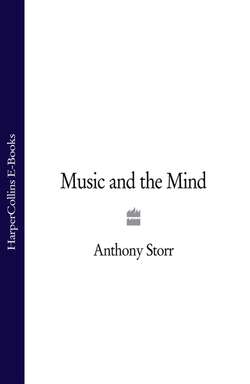Читать книгу Music and the Mind - Anthony Storr - Страница 9
CHAPTER III BASIC PATTERNS
ОглавлениеThe Musical Scale is not one, not ‘natural’, nor even founded necessarily on the laws of the constitution of musical sound so beautifully worked out by Helmholtz, but very diverse, very artificial, and very capricious.
ALEXANDER J. ELLIS1
In the first chapter, it was suggested that music is an art deeply rooted in human nature but not closely connected with the external world. As a consequence, different cultures create different musics, just as they create different languages. Although an ethnomusicologist may painstakingly learn to understand and appreciate the music of another culture, it is probably more difficult to do this than thoroughly to master a foreign language. Even within Europe, we cannot be sure that we appreciate music of a few centuries ago in the way that a contemporary listener apprehended it or that the composer intended it.
As our concert programmes demonstrate, the majority of Western listeners appreciate only a narrow range of music, perhaps from the middle of the seventeenth century to the middle of the twentieth century. To promote a concert consisting only of contemporary art music is usually to court financial disaster. Music composed before the seventeenth century has gained considerable popularity in the last fifty years, but remains a specialist taste. Although these limitations may be deplorable, one can hardly blame the ordinary listener for being so unadventurous. So much good music was composed during those three hundred years that there is a virtually inexhaustible treasure trove for the conventionally-minded listener to explore.
J. S. Bach is said to have composed five annual cycles of cantatas for every Sunday and feast day; that is, about 300 in all. Some two-fifths of them have disappeared, but 199 survive. In addition, there are a considerable number of secular cantatas. Although Bach’s popularity has continued to grow since Mendelssohn’s famous performance of the St Matthew Passion in 1829 began his rehabilitation, there can be very few enthusiasts who know all the sacred cantatas intimately. These cantatas alone might be thought a life’s work for any composer; but, as every listener knows, this is only one aspect of Bach’s achievement. There are the works for solo keyboard, keyboard concertos, orchestral suites and concertos, organ music, the Mass in B minor
